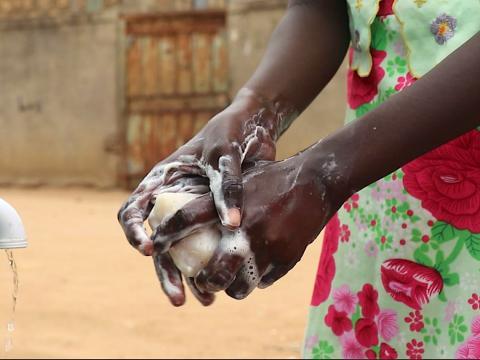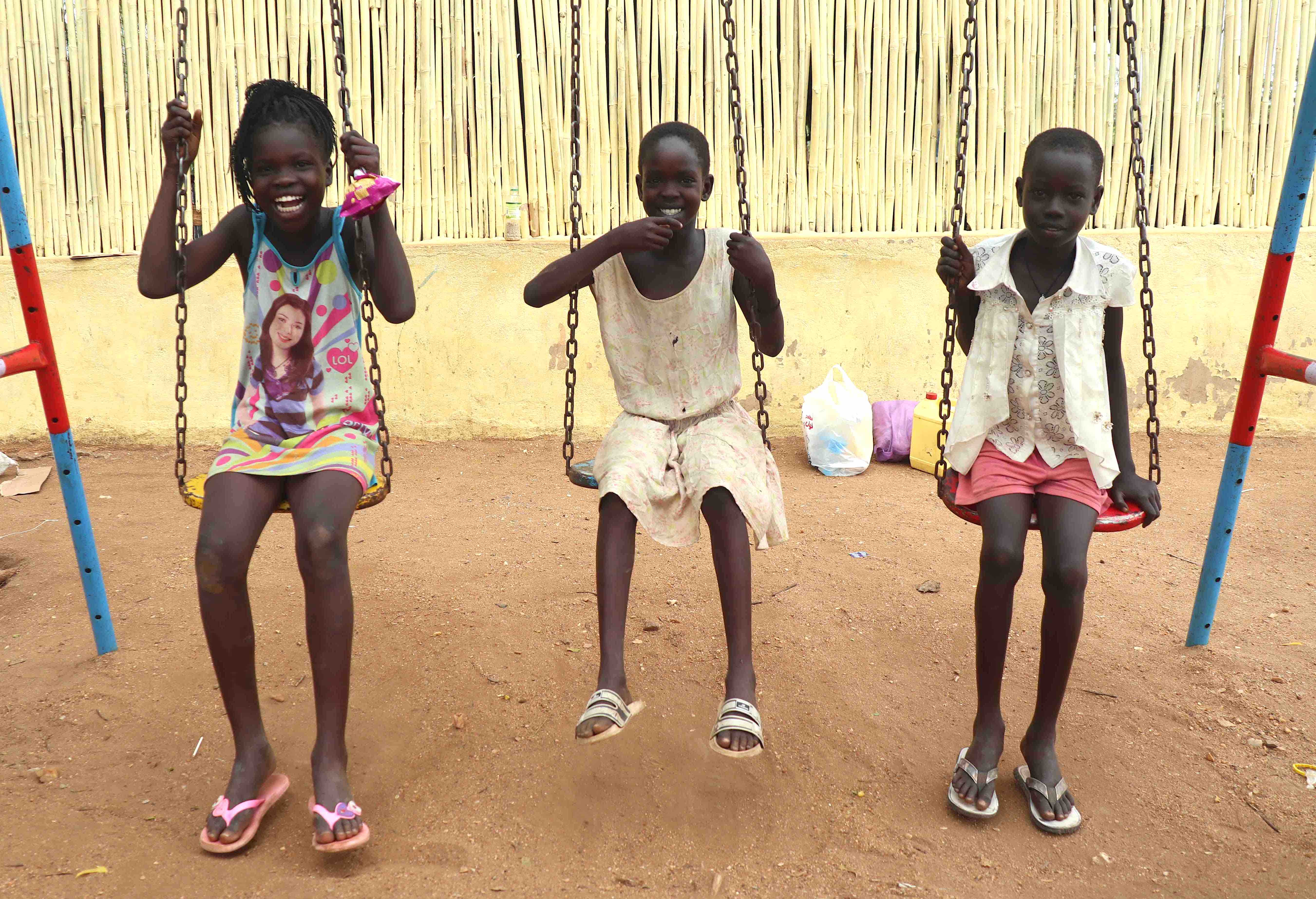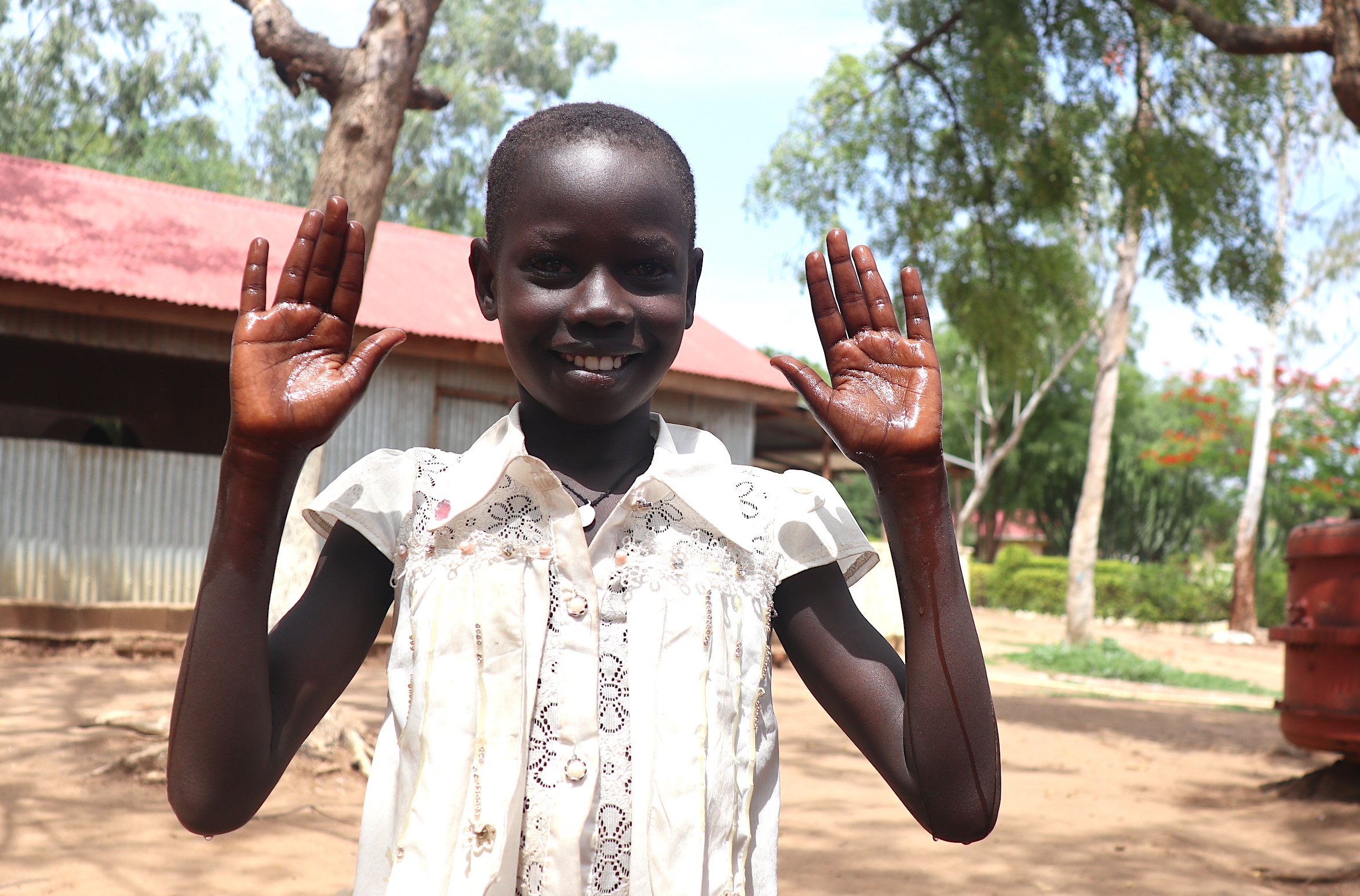How children in South Sudan’s displaced camps face the COVID-19 challenge

A UN report has estimated that 5.5 million people are in need of water, sanitation, and hygiene (WASH) services, at least 54 percent of these are children.
Agong Ubang, 5-year-old, shared how excited she was to wash her hands after learning that it can keep her safe from COVID-19. She was used to going around and play with her friends around the camp.
But now Agong stopped when the pandemic was announced. “I was told that this disease will kill my family if we get it. My parents told me to stay home and play with my siblings. I miss my friends,” says Agong.

Just like many other camps for displaced people in South Sudan, Mahad IDP camp in Juba is congested and crowded with people. An estimated 2,500 people live in the camp, mostly coming from another state seeking refuge after the 2016 conflict.
“World Vision teams supporting the camps in South Sudan are well-oriented how important WASH is in this time of the pandemic. They work with children, as well as mothers so that they are able to practice the prevention measures properly”, says Jimmy Samuel Moro, World Vision’s National WASH Coordinator.
Children’s observance of proper handwashing means a line of defense against the spread of many illnesses like diarrhea, hepatitis and other infections apart from COVID-19. Their social awareness and direct engagement mean also sensitizing others. Children are effective agents of change because they apply what they see.
Agong’s family is among the over 84,000 people that World Vision assists with monthly food rations through the support of the World Food Programme (WFP). Even at her young age, Agong is already aware of how dangerous coronavirus is, learning from the awareness campaigns.
“I know how to properly wash my hands with soap. I also avoid touching my nose, eyes, and mouth to keep me safe from the disease,” she adds. Moro emphasized how important this practice is. “Handwashing means better health and well-being for a child, free from diseases that could be prevented through good hygiene practices”, he adds.

But 10-year-old Akwai Okony was worried about their safety in the camp. “My siblings and I share a room and sleep in one bed. I am scared that if any of us gets the disease, we might all die”, she says.
Akwai adds, “We have water but most of the time we run out of soap. We need help with our supply of soap just like they do with the food ration. We will be thankful.
Taban Ismail, 12, grew up in the camp seeing fellow children get sick of diarrhea especially during the rainy season. Their surroundings are often dirty. “I am afraid we can die if people get infected with the virus. We share almost everything and people are difficult to avoid”, he says.
Now in primary five, Taban is worried about his education and staying home because of COVID-19. “I do not want this disease to stop me from achieving my dreams of becoming a lawyer someday. I grew up in the camp seeing people suffer. All I want is a good environment to be able to study and help fight for the most vulnerable people in this country”, Taban adds.

Over 1.9 million children in South Sudan are out of school due to COVID-19. As the government, donors, and humanitarian organizations are finding ways to resolve the urgent need, children like Taban are stuck at their small dwellings worried about their future on hold.
Moro concludes, “Children’s observance of proper handwashing means a line of defense against the spread of many illnesses like diarrhea, hepatitis and other infections apart from COVID-19. Their social awareness and direct engagement mean also sensitizing others. Children are effective agents of change because they apply what they see.”
World Vision’s awareness campaign on prevention measures in the communities continues to support the South Sudan Government’s High-Level COVID-19 Task Force, the Ministry of Health, and the World Health Organization.

VIDEO: COVID-19 stops schools and feeding program
Story and photos by Scovia Faida Charles Duku, Communications Coordinator